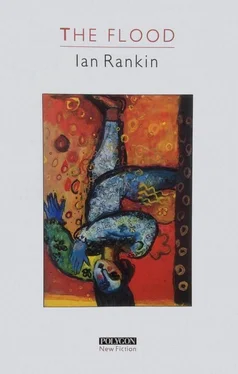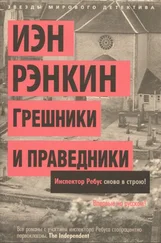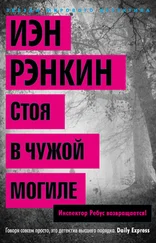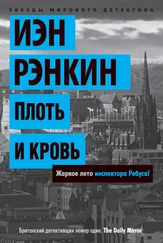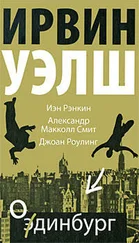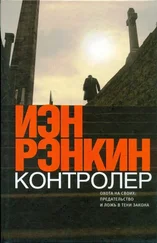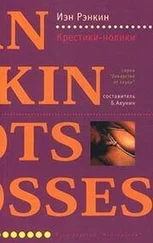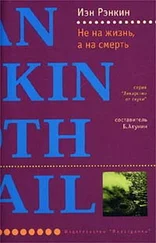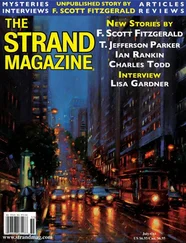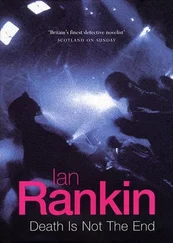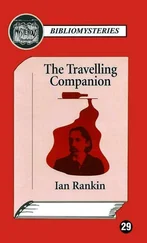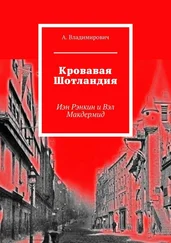‘But me want sweeties,’ he moaned.
‘I know what you’ll get,’ his mother warned.
Andy studied her back. She was young, still in her twenties, and her body was in good health. But, like all women in Carsden it seemed, her voice was coarse and she had no dress sense. Her jeans were tight, but not tight enough in the right places, and her high-heeled shoes made her wobble along the pavement. Her son appeared to be wearing grubby cast-offs. His shoes scraped the ground like flints. Andy watched the boy watching him, and turned his attention back to the car. Her husband was a television engineer. He was a gruff young man whose voice was often raised when at home. Andy hated using his own living room because of the noise from his neighbours’. Their television set was kept loud, lifting any conversation with it. The transistor radio, the vacuum-cleaner, the wails of the child. Andy preferred to use the small spare bedroom which he had turned into a sort of comfortable working office. A lot of his books were kept there, as were desk, chair, typewriter, and two extra speakers connected to the stereo in the living room. He was planning to decorate the house during the long holiday. Not that it looked bad as it stood, but there was something queasy about living with someone else’s colour scheme.
The house itself had been a snip at twelve thou, the building society pleased to lend him the necessary money, but it had been a mistake. He should have moved somewhere with a bit of privacy, somewhere out in the country. Still, you took jobs where you could find them, and ditto houses. This was the first house that he had actually owned. During his time at university he had stayed in rented flats and bedsits, and in his last school he had lived in a horrendous bed-and-breakfast establishment with no freedom whatsoever, his landlady being one of those Sunday spinsters who would be found loitering outside his room and would go into the bathroom after him to check for any misdemeanour. Andy had often considered leaving something nasty for her to find, but she had been a good soul in some respects, always giving him a special breakfast, and did not warrant such mischief. At a party once, when he had been an undergraduate, some student vets from Edinburgh had arrived with a sack. Later, a female scream from the bathroom had rung out. The stiffened corpse of an Alsatian dog was found sitting in the bath, a cigarette dangling from its mouth, reeking of formaldehyde. It had been a good joke for those drunk enough to appreciate it at the time, but then it had not been Andy’s bathroom.
Those had been good days, dead dogs aside. Only thirty now, he was feeling that it was downhill all the way nevertheless. Mary brightened his life to an extent, but sometimes, when soulful, he would think that he was getting old and had nothing before him but the schoolteacher’s life of Sisyphus. He watched the process unfold before him. When given a class of thirteen-year-olds, fresh enough from primary school, there was still a spark there, both of creative drive and of trust. As the years grew with them, however, the mistrust formed, the interest died, and the values — debilitating homely values — of the parents and elders took over, dragging them down into safe mediocrity. He saw some of them occasionally after they had finished with their schooling. Other teachers, friends, said that it was the mark of a good teacher that his or her kids kept coming back for a chat. If that were true, then he was a good teacher. He could certainly feel the distaste of some of the school’s older, disciplinarian teachers towards him.
‘It doesn’t pay, Mr Wallace, to become too familiar with the children, or at least to be seen to be familiar with them. It causes unrest, a breaking down of the authority by which we keep them in check.’ That from the assistant headmaster, a stocky, balding man who had won some kind of medal in the Second World War and wore it to church on Sundays and who terrorised the children by showing them what he could do with his tawse to a stick of chalk. It was pathetic. It was worse than that. Authority could have no hold over ninety per cent of the kids. With the belt now banned, the disciplinarians saw chaos descending and had nothing to fall back on, too late to make friends with their pupils. The pupils these days were definitely out to break weak teachers. It was a war, but one which could be won, to a large extent, through arbitration. There had to be talking. He was not like George McNair, the History master, who challenged unruly pupils to fights after school on the playing field behind the main building. That was one way to earn respect, but what price failure? One day McNair would be beaten in one of his bouts. Where would he stand then? He had put himself up against a wall in an alley of his own making.
Andy bent down to wash the hubcaps and felt his stomach straining over his waistband. He did little exercise, though he helped out during football practice sometimes. This afternoon Mary and he might go for a drive, then a walk, depending on the weather. God, he wanted her. He wanted her badly. There had not been a woman in his life for many months. He needed more from Mary than her company and conversation. He needed to have her silver-black hair loose and hanging across his bared chest. He knew that there were real complications. It was one thing to see a pupil’s mother, though even that was fraught, but to be her lover... Ah, if only Sandy were leaving school at summer. If only there wasn’t the wait till Christmas. Still, now that the boy had finished with exams there could be no more accusations of grade-rigging. At least no one could threaten Andy’s relationship with Mary via that device. All the same, it was a problem until Christmas.
The sun pressed its weight upon him. He squinted up into the sky. It was as blue as a sky could be, bluer than the sea outside Kirkcaldy. He smiled into it and hoped that it was a good omen. He straightened up and cracked his spine. He was way out of condition. He studied the house, his house.
There were no chimneys on the houses in this estate. They looked like rows of Lego buildings. He was cleaning his car in Legoland on a sunny Saturday morning. He shook his head and chuckled. He was not going to let anything get him down today. Not anything.
When the bus pulled away, its new cargo rattled their way up the winding stairwell and sauntered to the very back of the upper deck. They slumped into their seats and turned their heads to watch Main Street disappear behind them. Old people, staggering under the weight of bags, looked distantly at the roaring vehicle. Children stared up at the upper deck. The boys made gestures from the window. They were going to Kirkcaldy for the day. They were the most important people in the world.
Sandy, though he would not let it be known, was not keen on going upstairs. For one thing, all the smokers were there, and the smell of cigarettes made him queasy. For another thing, he could not be sure what gangs would board the bus between Carsden and Kirkcaldy to challenge his right to be sitting at the very back of the bus. He kept one hand in the pocket which contained his money. He examined the dying and unhealthy faces around him, faces which stared from the grimy windows as if fixed to a television screen. These people were lost, as hollow as the most brittle seashells. Sandy thought of days when he had been taken to Kirkcaldy beach by his grandmother. They might go there today, but it would be in a different guise. Today he was part of a group, a gang. He would walk differently and talk differently and act altogether differently. Walking to the bus stop, they had fed from each other as if studying older men. They aped those they wished to be. They strained towards manhood like little waggy-tailed dogs towards bigger bitches in heat. Sandy smiled wickedly.
Читать дальше
